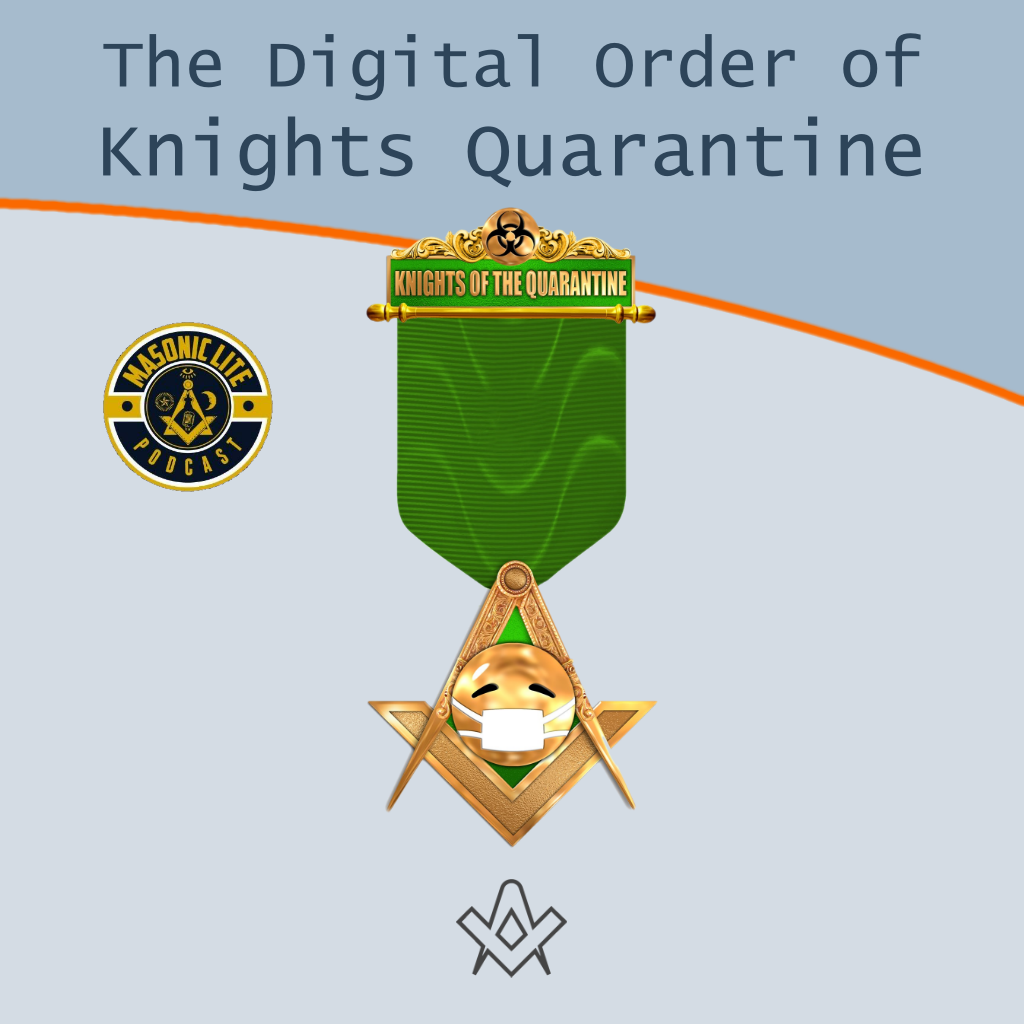Called “The Digital Order of Knights Quarantine”, it was advertised as “not-a-degree” because it was not an actual degree.
Introduction
On an evening in April 2020 a small group of Masons who run the Masonic Lite Podcast (MLP) presented what they called a “not-a-degree” on an internet meeting application called Zoom.
It was developed as a fundraising event in support of Meals on Wheels Covid-19 relief efforts but was also intended as a diversion from the tedium that developed as a result of the nationwide “Stay at Home” orders.
As each week that passed more Masonic events were missed and Masons around the world were feeling a growing absence in their lives. Masonic Lite Podcast has, since its inception, been a humorous diversion so it was a natural extension of their mission to provide just such a diversion.
Advertising for the event was almost exclusively on Facebook, and through that medium 197 people, mostly Masons, made a donation to the charity and registered to “attend” this live event.
The cast and crew were expecting a few dozen viewers, but day by day the numbers grew, and at the end and after expenses, they have donated well over $3,000 to the charity.
Background
Called “The Digital Order of Knights Quarantine”, it was advertised as “not-a-degree” because it was not an actual degree.
It was made up out of whole cloth and as a result there is no grand governing body who holds jurisdiction.
It was created by a small group of men, in a very short period of time, to meet a specific need. Much work went into composing the “degree” with numerous adjustments made necessary by a changing cast and a redirection in the plot.
In the end a fun night was shared with Brothers and others on the web from all over the world.
There were attendees from lodges in Scotland, England, Spain, Switzerland, Australia, and other places around the globe.
Several lodges in distant jurisdictions have requested copies of the script in order to present the work in their own lodges.
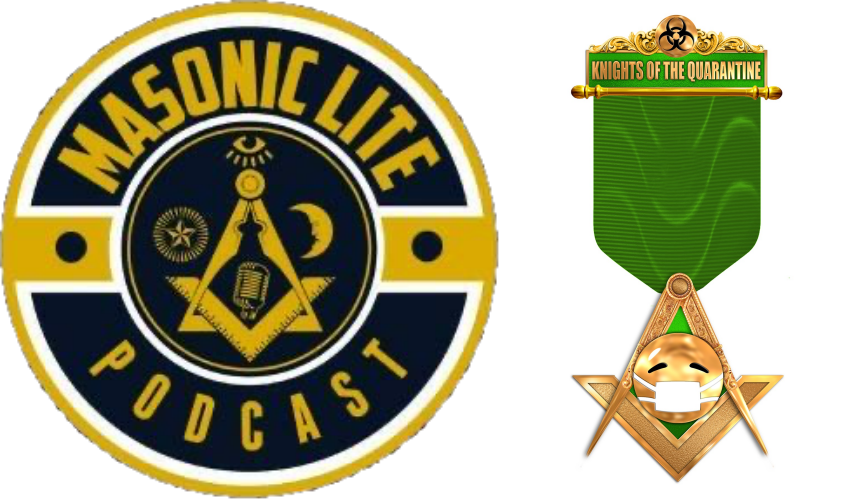
There is a jewel of this “not-a-degree”. The jewel was a significant attraction for the fundraiser, and it too was subject to some revision.
The original jewel, designed by John Bridegroom of The Masters Craft, was designed and re-designed to reflect the seriousness of the pandemic.
The revised jewel has a bar across the top emblazoned with the word “Survivor” with a green ribbon to which was pendant a Square and Compass, superimposed by a happy face wearing a mask.
The jewel has been retired and was only available to the contributors to the fundraiser.
Origin of the Digital Degree
The idea grew out of an offhand aside uttered by a podcast guest contributor who, at the end of a segment of the Masonic Lite Podcast called “Corpora Obscurum” which highlights unusual, lost, or forgotten fraternal bodies, suggested that perhaps something might come out of the current pandemic that would be an interesting diversion.
That idea fell on fertile ground and MLP co-host Jack Harley (one of the authors of this article) began to frame a narrative that would combine the pandemic’s social isolation with a hero’s quest, all with a distinct Masonic feel.
The Hero’s Story
The elements of every hero’s story are common throughout history.
With some modifications they contain certain components that allow the observer to participate emotionally in the story and to identify with one or more of the characters.
There is usually a great threat, whether to an individual, his clan or to humanity as a whole.
Responding to this threat, whether by his own volition or by coercion, is the hero.
The Hero is often an unlikely character who may not even understand the nature of his task, but knowing it is his duty and his destiny he accepts the role and embarks on the quest.
The hero is often accompanied by a companion who represents his conscience and serves as his moral lodestone.
From Gilgamesh to Game of Thrones every epic shares this common framework.
The Digital Order of Knights Quarantine has a similar structure.
The threat is well understood to be the spread of the Covid-19 virus, but more than that it is the darkness of isolation that came as a result.
This is the same darkness that closed our lodges and suspended Masonic work around the world. The setting is a nonsensical modern-medieval place called the Realm.
Add a young man called Interro (whose name is the root of “to seek”) and his faithful sidekick Pike.
At this point the whole project began to write itself.
The Digital Degree
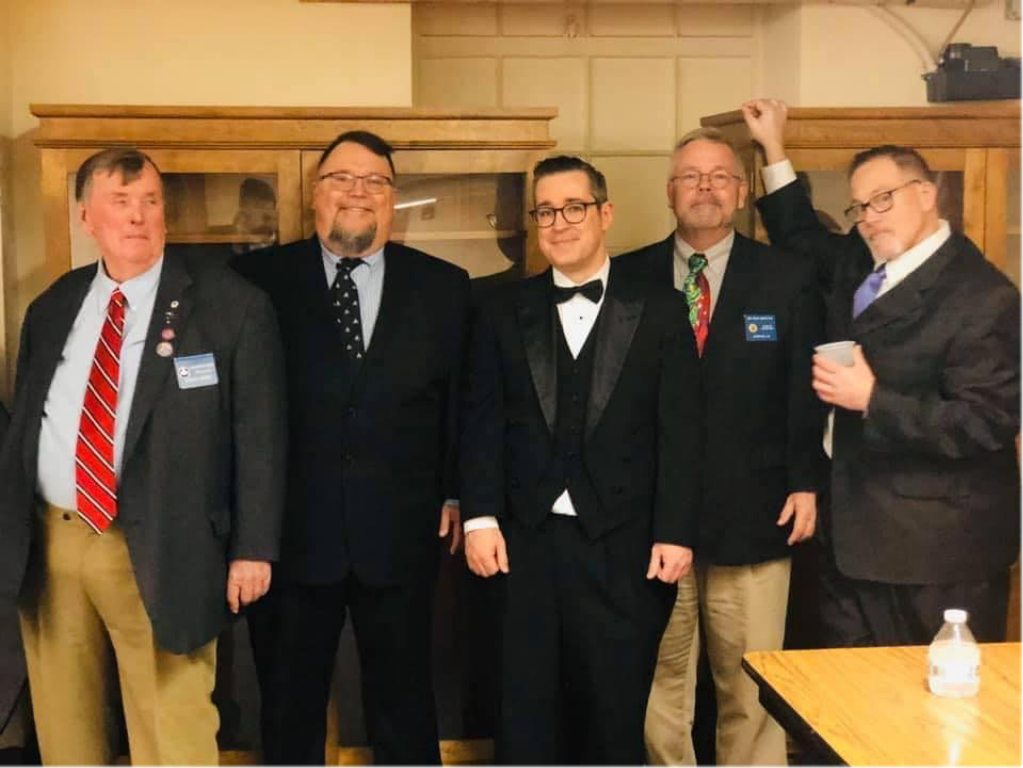
‘The Rogues Gallery’ – members of the Masonic Lite Podcast are,
from left to right: Larry Merris, Tim Dedman, Josh Lyter, Jack Harley, Pete Ruggieri
The actors were mostly Brethren well known to listeners of the Masonic Lite Podcast.
All were either hosts or previous guests of the show. And, as all of the podcast’s hosts are members of the Grotto, the quest is a familiar trope.
As the story unfolded each of the degree characters played a part in reflecting some Masonic component and moving the story along.
After the heroes are met cleaning horse stalls for the leaders of the Realm they encounter the herald of the coming doom, called the Knight of Many Orders.
He in turn meets the Mayor of the Realm whom every Mason will recognize as a grumpy Past Master.
Because the idea was of addressing a threat that is neither understood, nor even identified, the mayor rejects the knight, who then presses his mission on the hero, Interro.
Then Begins the Journey
Narrator: We are about to embark on a quest. We will treat the quest with humor and friendship, but keep in mind that the subject is very serious indeed.
We are, all of us, currently engaged in an ordeal unlike anything we have seen in our lifetimes.
We are confined to our homes in an isolation that is unprecedented.
It is frustrating, and aggravating, and often depressing.
People you know are struggling more than you can see.
And yet, we are given a new technology that allows us to reach out to our families and friends and neighbors to stay connected.
Be the light in the darkness for someone. Reach out and make contact, even as we wait for a new tomorrow.
You are about to be made a Knight of the Digital Order of Knights Quarantine.
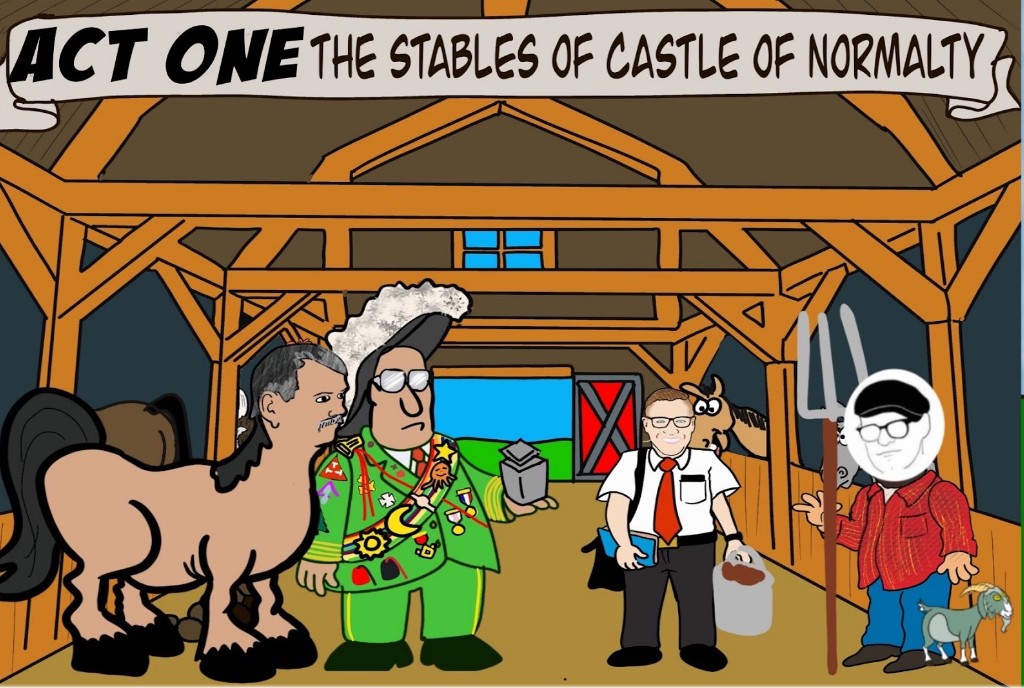
Interro and Pike meet an aged Alchemist, a student of the occult mysteries.
This character reflects on and spoofs the historical importance of the early proto scientists of the Middle Ages who attempted, by controlling the elements, to execute a change in the nature of things.
Unable to solve the present threat he sends them to an ancient wise man, a Lighthouse Keeper.
The Keeper introduces the idea of an ephemeral network of communication that ties people together.
He calls it “The Net” which is an oblique reference to the internet that has become so ubiquitous in our lives and our Craft.
He then sends the travelers off to continue their journey to the metropolis where others may help them on their way.
Arriving in the city they meet a lonely minstrel. He sings a sad dirge about the lonely darkness.
This scene was written after viewing a drone video of the empty streets of New York City.
He tells them of the “Masked Ones” who relieve the suffering of the afflicted and offers praise to those who have come to be called the essential workers.
This minstrel then sends our heroes on to meet someone who can make use of the “Net” to assist them on their quest.
Here we meet the social media savvy character who is so important in creating and managing the internet connectivity that inspired this digital degree.
He is the connection who can reach out into the internet and find whatever the travelers may need, be it documentation, travel help or supplies.
All of this is represented in the immediacy of the internet.
Finally, our heroes arrive at their destination. They are greeted by a Tiler who records their presence and announces them to the Primus Maxim.
In the end, in recognition of their energy and dedication in sustaining the light, the Primus invests our heroes with the Mantle of Light which is the Jewel of the “not-a-degree”.
Important Aspects of the Digital Degree
There is a narration at the beginning of the performance that makes clear the purpose of the story.
This project did not come out of frivolity, although it is occasionally humorous in its content, but rather it came in an attempt to reflect on and encourage the use of social media and technology.
Those uses were not only staying in touch with one another, but to enhance the Masonic experience with education and fellowship and to showcase the idea that people from all over the world can come together for a few minutes of peace and Freemasonry.
Zoom was selected as the platform almost by default. Numerous on-line Masonic gatherings have been propagating and many of them were using Zoom.
It is a cross-platform software that would allow users on phones, PCs and tablets with any operating system.
It was also free for the attendee and easy to use. As this was not an exclusively Masonic event the organizers did not need the enhanced security that some of the other on-line meeting software services offer.
EventBrite.com was chosen as the registration device for several reasons.
It is simple to use and because it is web based it was accessible across hardware and software systems.
It collected the money in a single place with simplicity and security, and it allowed the hosts to capture email addresses for further communication with the attendees.
This allowed the sending of the Zoom link, whereby viewers could join the meeting.
Original estimates for attendance were that perhaps 40 or 50 people would be willing to donate in order to see the event live.
Registered attendance was beyond optimistic hopes, ending at 210.
Because the podcast hosts were novices at the technology required to present the degree, there was concern about how it would look for the viewers.
After several rehearsals and some hardware changes the consensus is that it went fairly well.
The most difficult part was combining the live reading of the parts by the actors with the humorous illustrations that enhanced the experience.
After the show ended, Zoom was opened so that attendees could share comments with the cast.
This corresponded to social time after a Lodge meeting. All the feedback was favorable.
Copies of the script have been sent to Brethren in Scotland, England, Switzerland and Spain for performance in local lodges there.
The writers only stipulate that the performance should be for the amusement of Brethren or as a fundraising event for charity.
Zoom Recording
Analysis from an Education Perspective
The digital degree emphasized the seriousness of the Covid-19 pandemic and associated quarantine (see sidebar).
The primary focus was to bring Masonic teachings and ideals to bear on the various associated problems, especially the limitations inherent to the quarantine.
The online tool used to bring those Masonic attributes was a fictitious degree, acted out by experienced Masons using Zoom.
The Boyer’s model of scholarship [1] applies to the Craft and identifies four types of scholarship.
Three of them (teaching, integration and application) are relevant to the online digital degree.
Teaching
The script for the digital degree was analyzed in terms of ideas and concepts.
That analysis is part of online education assessment, especially in terms of education experiences promoting critical thinking and deep learning. [2], [3]
The digital degree encouraged higher order thinking especially related to critical reflection. Such reflection has been explored in adult education [4] and the Craft. [5]
The digital degree development included several components essential to successful adult education.
They included extensive pre-planning on the part of several Brethren, [6] reflective role-playing [7] and a focus on a real-life problem. [8]
Further, the informal nature of the degree helped to speak to the needs of adult learners. [9]
The delivery of the degree included using an online tool (Zoom).
Online tools are effective means of developing and delivering education for adults. [10]
The online degree was conveyed via multi-media (visuals [of actors and graphics], audio [speech and sound effects] and text [chat functions]).
The multi-media components used in the digital degree are effective in distance (online) education. [11]
For degree participants, having access to the digital degree on several platforms (e.g., personal computer, tablet, mobile devices) was a convenience.
Integration
Boyer noted that integration asked;
“Is it possible to interpret what’s been discovered in ways that provide a larger, more comprehensive understanding?” [12]
The digital degree included several concepts that melded a “big picture” framework.
Those concepts were: ignorance, arrogance/fear, urgency, communication barriers and solutions being limited by available knowledge and resources.
All those concepts were incorporated to help the attending Brethren identify with the ongoing concerns regarding the Covid-19 pandemic.
One concept of the digital degree deserves special attention.
As noted in the sidebar, the initial narrative noted:
“We will treat the quest with humor and friendship, but keep in mind that the subject is very serious indeed.”
Humor is a tool that can have a positive effect on adult learning [13] but the humor in the degree was not at all directed at the pandemic.
Rather, humor was used to support the degree dialogue and concepts.
One example is that a television set was referred to as “the flat screen of ignorance.”
Other examples of humor referenced a grumpy old past master and sound effects supposedly emanating from a horse barn.
By carefully incorporating humor, Masonic virtues as they apply to the pandemic, were reinforced.
Application
The scholarship of application, as described by Boyer includes:
“…how can knowledge be responsibly applied to consequential problems?
How can it be helpful to individuals as well as institutions?” [14]
The digital degree has several examples applying information to the Craft as well as the pandemic.
For the Craft, the degree includes alchemy, [15] a focus on improvement [16] and the trials and tribulations of being a lodge secretary.
Another Craft element is for Brethren to;
“find the Mantle of Light and to keep the flame of Wisdom, truth and Beauty alive for coming generations” (digital degree text).
A Fraternal approach mentioned;
“…there must be others who can aide us in our quest” (digital degree text).
A major point is that technology;
“…allows us to reach out to our families and friends and neighbors to stay connected” (see sidebar).
References to the pandemic mentioned the need for hand washing, being confined, uncertainty, difficulty communicating, overcoming the disease (called “darkness” in the degree) and health care workers (called “the masked ones, trained in soothing the afflictions of our darkness”).
Importantly, all references to the pandemic were offered in serious, meaningful tones and contexts.
Summary
The Digital Degree of the Knights Quarantine was an attempt to help deal with the constraints and concerns caused by the Covid-19 pandemic.
Those attempts focused on the tenants and ideals of the Craft. The initial narrative concluded:
“Be the light in the darkness for someone.
Reach out and make contact, even as we wait for a new tomorrow.
You are about to be made a Knight of the Digital Order of Knights Quarantine”
Acknowledgments
The following Brethren participated in performing the digital degree:
Masonic Lite Podcast members: Tim Dedman, Josh Lyter, Larry Merris, Pete Ruggieri.
Additional cast: Seth Anthony, Barry Banks, Jeff Moyer, Tyler Moyer.
For information about the Digital Degree readers may contact:
John F. (Jack) Harley
Past Master; Ephrata Lodge #665 F&AM of PA
Co-host of Masonic Lite Podcast
Knights Quarantine in the UK
Footnotes
References
1. Moran, ML & Anthony, SC. (2019, Fall). “The Boyer Model of Scholarship: Application to the Craft”. Journal of the Masonic Society, 46, 12-14.
2. Abdul Razzak, N. (2016, July). “Strategies for Effective Faculty Involvement in Online Activities Aimed at Promoting Critical Thinking and Deep Learning”. Education and Information Technologies, 21(4), 881-896.
3. Mystakidis, S, Berki, E & Valtanen, J. (2019). “The Patras Blended Strategy Model for Deep and Meaningful Learning in Quality Life-Long Distance Education”. Electronic Journal of e-Learning, 17(2), 66-78.
4. Yarbrough, JR. (2018, October). “Adapting Adult Learning Theory to Support Innovative, Advanced, Online Learning – WVMD Model”. Research in Higher Education Journal, 35, 1-15.
5. Moran, M. (2018, Summer). “Reflection as it Applies to Masonic Education and Scholarship”. Journal of the Masonic Society, 41, 30-33.
6. Clifton, G. (2017, August). “An Evaluation of the Impact of “Learning Design” on the Distance Learning and Teaching Experience”. International Review of Research in Open and Distributed Learning, 18(5), 277-286.
7. Hersted, L. (2017, April). “Reflective Role-Playing in the Development of Dialogic Skill”. Journal of Transformative Education, 15(2), 137-155.
8. Lopez Brown, P. (2017, April). Theme: “The 21st Century Adult Learner”. Educational Research and Reviews, 12(8), 540-548.
9. Owusu-Agyeman, Y. (2019, December). “An Analysis of Theoretical Perspectives that Define Adult Learners for Effective and Inclusive Adult Education Policies”. International Review of Education, 65(6), 929-953.
10. LeNoue, M, Hall, T & Eighmy, MA. (2011, Spring). “Adult Education and the Social Media Revolution”. Adult Learning, 22(2), 4-12.
11. Tooth, T. (2000). The Use of Multimedia in Distance Education. Knowledge Series. Commonwealth of Learning, Vancouver (British Columbia).
12. Moran, M. (2016, Spring). “The Boyer Model of Scholarship Applied to the Craft”. Philalethes, 69(2), p. 76.
13. Seidman, A & Brown, SC. (2016, February). “Laugh and Learn”. Adult Learning, 27(1), 41-43.
14. Moran, The Boyer Model of Scholarship Applied to the Craft. P. 75.
15. Sarmiento, R. (2020, Winter). “Alchemy in Masonry”. Journal of the Masonic Society, 47, 10-11.
16. Fritz, FR. (2019, Winter). “Are you an Educated Man”. Journal of the Masonic Society, 45, 12-13.
Article by: Michael L. Moran
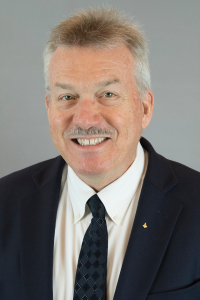
Brother Moran is Professor Emeritus from Misericordia University, PA.
He is a Master Masonic Scholar (PA Academy of Masonic Knowledge) and a Hauts Grades Academic (AASR-NMJ).
His primary interests are Masonic education and scholarship.
Article by: John F. Harley
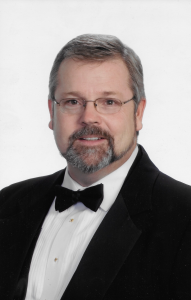
Brother Harley was made a mason in 2004 and is a Past Master of Ephrata Lodge no. 665 in Ephrata, Pennsylvania.
In addition to participating in numerous appendant bodies he is currently active in mentoring and Masonic Education in his home Lodge.
“Every building needs a firm foundation.”
Recent Articles: membership
 A Rose by any other Name may not be the same Explore the profound distinctions between conferred and transmitted Masonic degrees with Bro. Scott Wisdahl. Delve into how presentation quality, personal impact, and setting shape these rituals, and consider the potential for digital adaptations in modern Masonic practices. Join the discussion on enhancing the Masonic journey and preserving its essence. |
 Progression through the Degrees; a Rite or a Privilege? Exploring the layered journey of Freemasonry, Matt DA Fletcher probes the essence of progression—whether it's a mere rite or a privileged path. Delve into a nuanced perspective where every degree is not just a milestone but a fraction of a grander continuum. |
 Quantity vs Quality within the world of Freemasonry Dive into the compelling debate of quantity vs quality within the world of Freemasonry. Discover the transformative focus on attracting members aligned with the institution's values, promising not only growth but quality growth. High-value individuals assure sustainable development with their commitment to serving the brotherhood. |
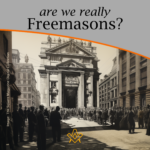 Maybe Freemasonry has opened its doors too wide. Perhaps some have not understood that the survival of Freemasonry in order to achieve its sublime purpose lies not in the number of members it has, but in their quality. Maybe we need less members and more Freemasons. Less men in Freemasonry and more Freemasonry in men. |
 What is ritual and why is it important? P1 Delve into the profound world of Freemasonry rituals and their significance. This insightful piece unravels the underlying importance of rituals, their impact on participants, and the transformative power they hold. Uncover why these centuries-old traditions remain integral to Masonic practice today. |
 Could Freemasonry be helpful for young men? Unravel the Masonic Brotherhood: Could Freemasonry be the antidote to modernity's challenges for young men? Dive in as we explore the Masonic world, its principles, camaraderie, and how its traditional rituals could help forge stronger identities in an increasingly complex world. |
 Discover the remarkable benefits of Lodge Meetings on your well-being. From fostering connections to combating stress, learn how these male-oriented gatherings offer an antidote to anger, hunger, isolation, and exhaustion. Dive into the power of shared experiences, understanding, and camaraderie. Your key to improved mental health awaits inside. |
 Tutorial for a Worshipful Master Unlock the Secrets to Leadership Mastery in our Worshipful Master's Tutorial! Brother Antonio Biella shares step-by-step guidance for Masonic Lodge leaders on honing their roles, duties, and future vision. Discover how to drive growth and engagement in your Lodge, setting ambitious goals and inspiring member participation. |
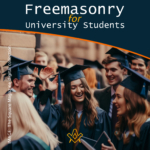 Freemasonry for University Students What are social skillset challenges facing students when they graduate from university ? |
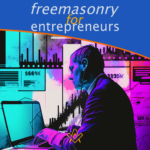 How the Core Values of Freemasonry; Brotherly Love, Relief and Truth Can Be Applied to Improve Productivity For Entrepreneurs |
 Why I became a Freemason: a personal journey of self-improvement Salik Tariq shares his reasons for becoming a Freemason – a journey of self-improvement, finding a community, and personal growth. |
 Freemasonry: Coming out of the Cloisters This paper examines the fundamental tensions on the lines of religion, gender and political ideology that exist in some jurisdictions of Freemasonry. It is on the first of these, religion, on which he makes an initial and exploratory focus. - by Gerald Reilly |
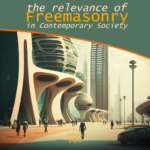 The Relevance of Freemasonry in Contemporary Society The role of Freemasonry in contemporary society is an indispensable one. Despite the challenges and misconceptions it faces, the organization remains steadfast in its humanitarian pursuits and commitment to personal growth and self-betterment. Through its efforts to evolve and adapt to the changing needs of its members and the world, Freemasonry continues to be a vital force in shaping a better future for all. |
 Has Freemasonry managed to revive and thrive after the darkness of the Pandemic? Robert Lomas gives us some (promising) insights. |
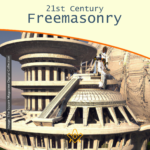 21st Century Freemasonry – a Sign of the Times? A recent article in The Times of London highlighted the dilemma 21st Freemasonry is facing. In this article one Master Mason shares his views of the strengths, and the challenges of modern Masonry. |
 A concept that is both based on our Freemasonic rituals and what we understand as teamwork. This article by Chris Batty examines why teamwork in the lodge is the network that binds us. |
 Lebanese Freemasonry has been both witness to and sometimes participants in turbulent events and forces, which shaped and influenced their world. |
 Is a Masonic Tradition Necessary? Dealing with Masonic tradition is a complex subject that requires careful analysis in order to reach a balanced point on the best etymological definition and the set of discourses and practices, which often end up being presented as such, without, however, presenting bases that support them, often serving only as a discourse that restricts and controls the masses. Fernando Rodrigues de Souza debates this complex subject. |
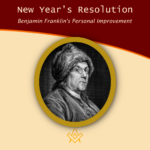 New Year's Resolution with Benjamin Franklin's Personal Improvement Are you ready for a new year's resolution challenge ? To accomplish his life’s goals, at 25 ( around 290 years ago ), Benjamin Franklin developed and committed himself to a personal improvement program that consisted of 13 virtues. You are invited to join me in practicing his daily routine for 2023. |
 The Alberta Masonic Higher Education Bursary Fund is to help the next generation of Albertans, our children and grandchildren, to obtain the education they need to lead successful lives and contribute to the welfare of mankind. As you can see from this little lesson of our history, education is truly a Masonic obligation. |
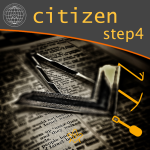 To be a Better Citizen of the World: Step 4 A value proposition for Pure Ancient Masonry as defined in terms of Citizenship; the allegories, symbolism and lessons are a blueprint for all Freemasons to be a better citizen of the world. |
 To be a Better Citizen of the World; Step 3 A value proposition for Pure Ancient Masonry as defined in terms of Citizenship; the allegories, symbolism and lessons are a blueprint for all Freemasons to be a better citizen of the world. |
 In connection with recent article about Freemasonry in the metaverse, we look at how an Egregore applies to Freemasonry in a digital world |
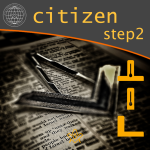 To be a Better Citizen of the World; Step 2 A value proposition for Pure Ancient Masonry as defined in terms of Citizenship; the allegories, symbolism and lessons are a blueprint for all Freemasons to be a better citizen of the world. |
 There are many brotherhoods in the world, and Freemasonry is one of the most significant and successful of them all. This article will be the focus two questions: the importance of brotherhood ? and is there room for improvement in Freemasonry? |
 Intergenerational relations in Masonry: challenges and possibilities Backed with scientific research, Professor Luiz Neto and Professor Alexandre Braune investigate the Intergenerational relations in Freemasonry and explores the challenges and opportunities. |
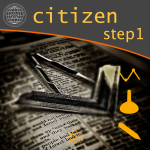 To be a Better Citizen of the World; Step 1 A value proposition for Pure Ancient Masonry as defined in terms of Citizenship; the allegories, symbolism and lessons are a blueprint for all Freemasons to be a better citizen of the world. |
 The Masonic Temple is a platform where both Freemasons and non-Masons, enthusiasts of real art and spiritual growth, connect to the new world of the metaverse. A Freemasonry in the metaverse project, based regular freemasonry principles. |
 Opportunity to fix the Sussex fudge Is there a value proposition for members, that under English Constitution Freemasonry, we have a 4 part offering; Entered Apprentice, Fellowcraft , Master Mason and Companion, conducted in a single craft lodge ? |
 Value Proposition of Freemasonry In addressing declining lodge membership and lack of attendance, we need to assess the value it offers to members. What is value, and what does it mean to you? |
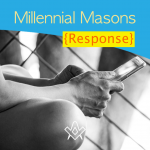 What is a 'Millennial' and what do they want from Freemasonry? You'll be surprised at the answers. |
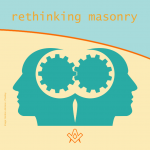 Let us help answer a fundamental question, from a confused newly raised brother asking “What does it all mean and where do I go from here?” |
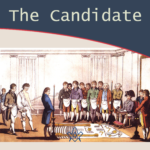 Written in 1930, much of the advice is still relevant today - although some may provoke further thought or debate! |
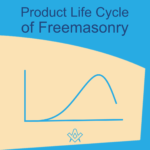 Product Life Cycle of Freemasonry An inconvenient truth about the product life cycle of Freemasonry |
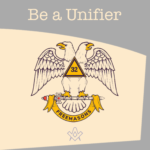 Freemasonry is local. This is where we need to start. We start with our Facebook friends, our neighbours, our colleagues, our lodges… |
 Freemasonry in the time of pandemic The Rule of Six. Localised lockdowns. Second wave? What do we do now?! The answer is simple - engage with members, promote Masonic education and get thinking outside the lodge. |
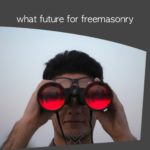 The current functioning of the Masonic movement has some positive aspects and others that are blatantly backward and counterproductive. |
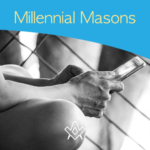 What is a 'Millennial' and what do they want from Freemasonry? You'll be surprised at the answers. |
 How to improve your Lodge Membership Marketing Program. |
 The Anti-Social Impact of Social Media The 'dark side' of social media and its negative effect on our mental health |
 If Freemasonry cannot meet, is this an opportunity to make a change to how we do things? |
 Has your lodge accepted an unknown candidate from the internet? Third in a three-part series looking at the process to accepting candidates via the internet |
 Is the brother of a brother a brother ? Rights to visit - recognition and regularity re-evaluated. |
 The second article in the Unknown Candidate series - Outlining the social media marketing process to attract the unknown candidate to make that first enquiry |
 Ask a random Freemason the purpose of Freemasonry and the likely response will be to “make good men, better”. Research undertaken by James Justin Davis Pennsylvania Academy of Masonic Knowledge. |
 Has your lodge accepted an unknown candidate from the internet? First in a three-part series looking at the process to accepting candidates via the internet |
 Mental Health - Raising its awareness and how we as Freemasons throughout the entire UK can help our fellow brethren and their families when they need it. |
 Share one thought why freemasonry is relevant today - Open question posted on Facebook with a very wide range of responses from Brethren across the globe |
 The Tipping Point of Freemasonry Why do brothers lose interest in Freemasonry and what can we do to get that spark back? At what moment did our own thoughts begin to waver? |
masonic knowledge
to be a better citizen of the world
share the square with two brothers

click image to open email app on mobile device


